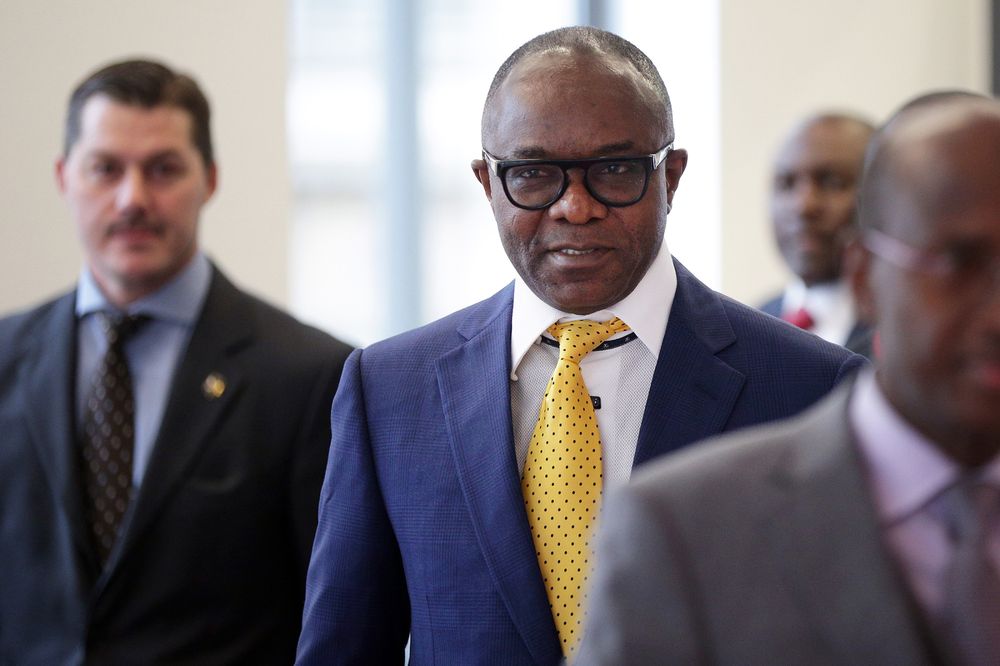- Timely FDP Approval Good for Govt, Investors – Kachikwu
The Minister of State for Petroleum Resources, Dr. Ibe Kachikwu, has said timely approval of field development plan is a win-win situation for both the government and investors.
Kachikwu, in his presentation at a technical symposium organised by the Society of Petroleum Engineers, Nigeria in Lagos, described the FDP as one of the fundamental criteria in the development of upstream exploration and production projects in the country.
He said, “Before a newly discovered field can be developed or a matured oilfield is to be redeveloped and its hydrocarbon produced, an FDP is required.
“It would contain a proper appraisal and valuation of the subsurface reservoir and surface facilities needed to ensure that the field is not only optimally exploited, but will also be economical to produce.”
According to the minister, the FDP is the road map for the development of any asset in the oil and gas sector.
He said, “Therefore, to a large degree, it defines the success or otherwise of the field. This is the document the regulator of our oil and gas industry, the Department of Petroleum Resources, must approve before the commencement of activities in any oilfield of our nation.
“In Nigeria, the enabling law that gives legal backing to the FDP approval is the Petroleum (Drilling & Production) Regulation of 1969, as amended, Manual of Procedure Guide for the Petroleum Inspectorate, Procedure Guide for the Design and Construction of oil and gas production facilities and numerous other guidelines developed in that regard by the DPR.”
According to him, the laws of Nigeria prevent licence holders from installing facilities or producing oil and gas without the approval of the Minister of Petroleum Resources or its delegate, the DPR.
He said, “When considering whether to approve an FDP proposal, the DPR takes cognisance if the proposal meets government’s policy objectives including local content development and whether the methods proposed for the FDP are in accordance with good oilfield practices.
“In the evaluation process of the FDP approvals, the government’s general target is to maximise the technical and commercial recovery of oil and gas resources while ensuring the utilisation of natural gas in conformity with the domestic gas obligations. It is important that government acts quickly to evaluate and approve the FDPs, thereby ensuring the momentum of investors doesn’t dip.”
Kachikwu noted that one of the main issues that had resulted in the delay of approvals was the inadequacy/incompleteness of plans.
He said, “Hence, as part of our 7 Big Wins, we initiated the Nigerian Gas Flare Commercialisation Programme as a solution. The purpose of the NGFCP is to eliminate wastage of gas, thereby stimulating economic growth, driving investments and providing jobs in the nation through the use of widely available innovative technologies.
“This initiative will provide an end-to-end solution that will positively impact the Nigerian Economy. The DPR will not approve any FDP, unless there is an end-to-end gas utilisation solution in place.”
According to the minister, another issue is when the field will extend into neighbouring concessions or licence areas and then unitisation of the asset becomes necessary. The straddling fields or reservoirs are then exploited and developed as a unit using a single operator model
He said the DPR recently organised an industry-wide workshop to review the unitisation guidelines with a view to removing those bottlenecks that prevented the development of unitised fields in Nigeria.
Kachikwu said, “To increase attractiveness of projects, we will soon roll out directives that will help in optimising our asset development plans to enhance profitability and competitiveness.”

 Billionaire Watch3 weeks ago
Billionaire Watch3 weeks ago
 Startups4 weeks ago
Startups4 weeks ago
 News4 weeks ago
News4 weeks ago
 News4 weeks ago
News4 weeks ago
 Bitcoin4 weeks ago
Bitcoin4 weeks ago
 Naira4 weeks ago
Naira4 weeks ago
 Forex3 weeks ago
Forex3 weeks ago
 Treasury Bills4 weeks ago
Treasury Bills4 weeks ago

























